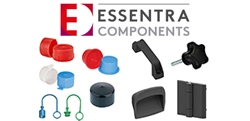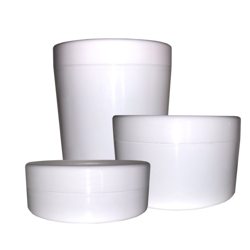BASF Particle Foam used to manufacture Food Packaging
Submission Date : 2018-01-15
Conserving resources with EPS food packaging

Styropor produced from renewable resources for the first time on the market
BASF’s biomass balance approach for conserving fossil resources continues to establish itself
BASF’s customer Schaumaplast GmbH & Co.KG, an internationally active manufacturer of molded parts made from particle foams, is now offering packaging made from biomass-balanced Styropor®. The Styropor MB used is the first EPS (expandable polystyrene) on the market to be produced using BASF’s biomass balance approach. Following special balancing, the TÜV SÜD-certified method can be used to replace the fossil resources needed to manufacture Styropor entirely with renewable resources right at the start of the production process. Each biomass balance product thus helps to conserve fossil resources and reduce greenhouse gas emissions. The formulation and quality of Styropor MB is unchanged compared to its fossil counterpart.
“At BASF we look at products across their full life cycle. Sustainably produced raw materials therefore play a major role for us. Styropor packaging also offers the advantage that it is 98 per cent air and fully recyclable – consumers can simply dispose of it in their yellow bag or recycling bin,” says Dr. Klaus Ries, Vice President Global Business Management Styrenic Foams at BASF.
Packaging manufacturers and end users benefit
“We are proud to be the first packaging manufacturer to launch a product made from biomass-balanced Styropor® from BASF on the market. It is an innovation that scores points for its environmental impact without losing the foam’s tried-and-tested technical properties,” explains Bernhard Hauck, managing director at Schaumaplast in Reilingen (www.schaumaplast.com).
Schaumaplast is thus able to meet the high sustainability requirements of its customer: The young start-up company IceGuerilla.de GmbH & Co. KG sends ice cream right across Germany fresh and with excellent thermal insulation in Styropor packaging. “Our quality ice cream is now delivered in high-quality packaging that is not only very good at keeping the product cool, but also helps the environment and climate by using renewable raw materials,” adds Ralf Schulze, co-founder and managing director of IceGuerilla.de in Beeskow (www.iceguerilla.de).
BASF now also offers other EPS grades as part of the biomass balance concept. These include other Styropor brands, but also some of the gray EPS versions from the Neopor® range for insulation applications.
The biomass balance method
In a similar way to feeding green electricity into the power grid, the biomass balance concept incorporates renewable resources in the existing Production Verbund. The method permits biomass – for example in the form of biogas or bio-naphtha from certified sustainable production – to be used instead of fossil resources right at the start of the value chain and later to be allocated to the respective sales products in a defined way. This does not result in any change to the formulation and quality of the product. TÜV SÜD has now issued certificates for BASF products such as superabsorbers, engineering plastics, dispersions and a number of intermediates (www.basf.com/biomassbalance).
Certification
BASF’s biomass balance method has been developed together with TÜV SÜD and certified for the BASF production sites in Ludwigshafen, Antwerp and Schwarzheide. Schaumaplast also carries a TÜV SÜD certificate for the use of Styropor® MB: This means that the company pledges to have the entire supply chain reviewed against high quality standards through to the end product on an annual basis. Suppliers and end customers can thus be certain of the origin of the raw materials and the sustainability of the concept. TÜV SÜD Industrie Service GmbH is renowned for its many years of experience in the fields of energy and sustainability certification (www.tuev-sued.de).















